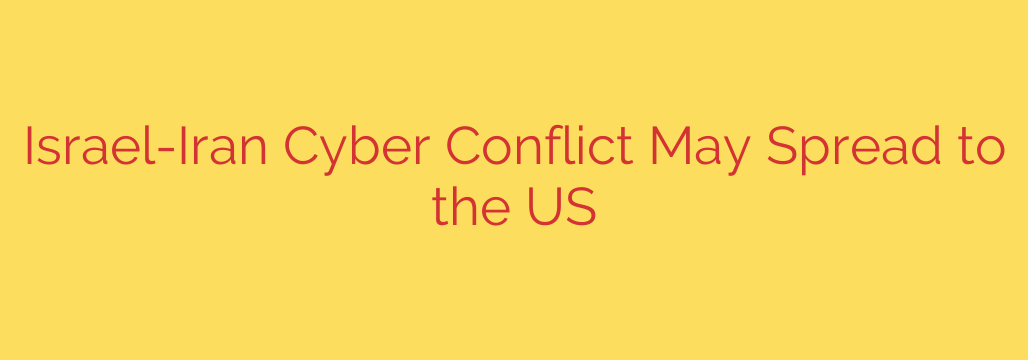
The intensifying cyber conflict between Israel and Iran poses a growing threat that could extend beyond their direct confrontation, potentially impacting the United States. This digital battleground reflects the broader geopolitical tensions between the two nations, marked by tit-for-tat cyberattacks targeting various sectors.
Initially focused on espionage and disruption, these state-sponsored hacking operations have become more aggressive. Both sides have been accused of targeting critical infrastructure, government systems, and even private companies. Iran has reportedly launched attacks aimed at disrupting Israeli utilities and financial services, while Israel is suspected of sophisticated sabotage operations against Iranian nuclear and military facilities.
The concern is that this escalating cyber conflict could spill over, either accidentally or intentionally, affecting global networks and third-party countries. The US, being a close ally of Israel and frequently targeted by Iran, is particularly vulnerable. Attacks could potentially target American businesses, government agencies, or even critical infrastructure systems that have links or dependencies related to either Israel or Iran.
Experts warn that the blurred lines between nation-state activity and proxy groups, coupled with the sophisticated nature of these cyberattacks, increase the risk of miscalculation and unintended consequences. As the digital skirmishes between Israel and Iran continue to evolve, the international community, especially the US, must remain vigilant against the potential for this conflict to widen into a more disruptive and far-reaching cyber crisis. Understanding the dynamics and potential targets is crucial for developing effective defenses against this evolving threat.
Source: https://go.theregister.com/feed/www.theregister.com/2025/06/13/cyber_weapons_israel_iran/








